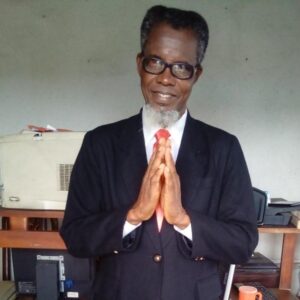THE TRAGIC INTERSECTION OF FAITH AND MEDICAL ETHICS: A CALL FOR COMPASSIONATE UNDERSTANDING

In a world where faith and medicine often intersect, the tragic story of a pregnant woman who lost her life due to a refusal of a blood transfusion by a Jehovah’s Witness doctor raises profound questions about the implications of religious beliefs on medical practice.
This heartbreaking incident, which occurred in Port Harcourt, serves as a stark reminder of the potential consequences when faith-based doctrines are prioritized over the sanctity of life.
The Heartbreaking Case
Mr. Adam, the husband of the deceased, recounted the harrowing experience of his wife, who was seven months pregnant and suffering from severe abdominal pains. Rushed to a local maternity clinic, the medical team faced a critical decision: to administer a blood transfusion that could potentially save both mother and child.
However, the attending physician, adhering to the tenets of Jehovah’s Witness faith, refused to perform the transfusion, leading to a tragic outcome.
This incident is not an isolated case. It highlights a broader issue where individuals, often in vulnerable situations, are subjected to the rigid interpretations of religious texts that can lead to life-threatening consequences.
The Misuse of Scriptures
Many religious groups, including Jehovah’s Witnesses, base their refusal of blood transfusions on specific interpretations of biblical scripture. For instance, passages such as Acts 15:28-29 and Leviticus 17:10-14 are often cited to support the belief that consuming blood, in any form, is a sin. While faith can provide comfort and guidance, the application of these beliefs in medical emergencies can lead to devastating outcomes.
It is crucial to recognize that scriptures can be interpreted in various ways. The misuse of religious texts to justify harmful practices can mislead and endanger the lives of the gullible. In the case of Mr. Adam’s wife, the rigid adherence to these beliefs, resulted in a tragic loss that could have been avoided with a more flexible interpretation of faith in the context of medical necessity.
The Ethical Dilemma
The ethical dilemma faced by medical professionals who are also adherents of faith-based doctrines is complex. On one hand, they are bound by their religious beliefs; on the other hand, they have a moral and professional obligation to save lives. This conflict can lead to situations where patients are denied critical care based on the personal beliefs of their healthcare providers.
In many countries, laws exist to protect patients’ rights to receive necessary medical treatment, regardless of the beliefs of their healthcare providers. However, the enforcement of these laws can be inconsistent, particularly in regions where religious beliefs hold significant sway over medical practices.
Educating the Public
To prevent further tragedies, it is essential to educate the public about the potential dangers of rigidly adhering to religious doctrines in medical contexts. Here are some key points to consider:
- Promote Critical Thinking: Encourage individuals to critically evaluate religious teachings, especially when they intersect with health and well-being. Understanding the context and the potential consequences of strict interpretations can lead to more informed decisions.
- Encourage Open Dialogue: Foster conversations between religious leaders, medical professionals, and the community. Open dialogue can help bridge the gap between faith and medicine, allowing for a more compassionate approach to healthcare.
- Advocate for Patient Rights: Support initiatives that protect patients’ rights to receive necessary medical treatment, regardless of the beliefs of their healthcare providers. This includes advocating for policies that ensure informed consent and respect for individual choices.
- Highlight Alternative Interpretations: Share stories and teachings from within religious communities that emphasize the importance of life and health. Many faith leaders advocate for a more nuanced understanding of scriptures that prioritize compassion and care.
- Support Mental Health Resources: Provide access to mental health resources for individuals struggling with the intersection of faith and medical decisions. Counseling can help individuals navigate their beliefs while making informed choices about their health.
Conclusion
The tragic loss of Mr. Adam’s wife is a poignant reminder of the need for compassion, understanding, and flexibility in the face of medical emergencies. While faith can provide strength and guidance, it is essential to prioritize the sanctity of life above all else. By educating the public and fostering open dialogue, we can work towards a future where faith and medicine coexist harmoniously, ensuring that no one has to suffer due to the misinterpretation of religious teachings.




